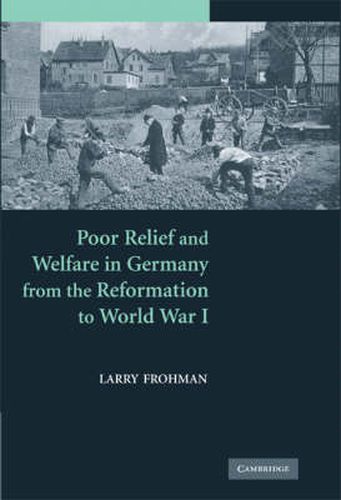Readings Newsletter
Become a Readings Member to make your shopping experience even easier.
Sign in or sign up for free!
You’re not far away from qualifying for FREE standard shipping within Australia
You’ve qualified for FREE standard shipping within Australia
The cart is loading…






This account of poor relief, charity, and social welfare in Germany from the Reformation through World War I integrates historical narrative and theoretical analysis of such issues as social discipline, governmentality, gender, religion, and state-formation. It analyses the changing cultural frameworks through which the poor came to be considered as needy; the institutions, strategies, and practices devised to assist, integrate, and discipline these populations; and the political alchemy through which the needs of the individual were reconciled with those of the community. While the Bismarckian social insurance programs have long been regarded as the origin of the German welfare state, this book shows how preventive social welfare programs - the second pillar of the welfare state - evolved out of traditional poor relief, and it emphasises the role of progressive reformers and local, voluntary initiative in this process and the impact of competing reform discourses on both the social domain and the public sphere.
$9.00 standard shipping within Australia
FREE standard shipping within Australia for orders over $100.00
Express & International shipping calculated at checkout
This account of poor relief, charity, and social welfare in Germany from the Reformation through World War I integrates historical narrative and theoretical analysis of such issues as social discipline, governmentality, gender, religion, and state-formation. It analyses the changing cultural frameworks through which the poor came to be considered as needy; the institutions, strategies, and practices devised to assist, integrate, and discipline these populations; and the political alchemy through which the needs of the individual were reconciled with those of the community. While the Bismarckian social insurance programs have long been regarded as the origin of the German welfare state, this book shows how preventive social welfare programs - the second pillar of the welfare state - evolved out of traditional poor relief, and it emphasises the role of progressive reformers and local, voluntary initiative in this process and the impact of competing reform discourses on both the social domain and the public sphere.